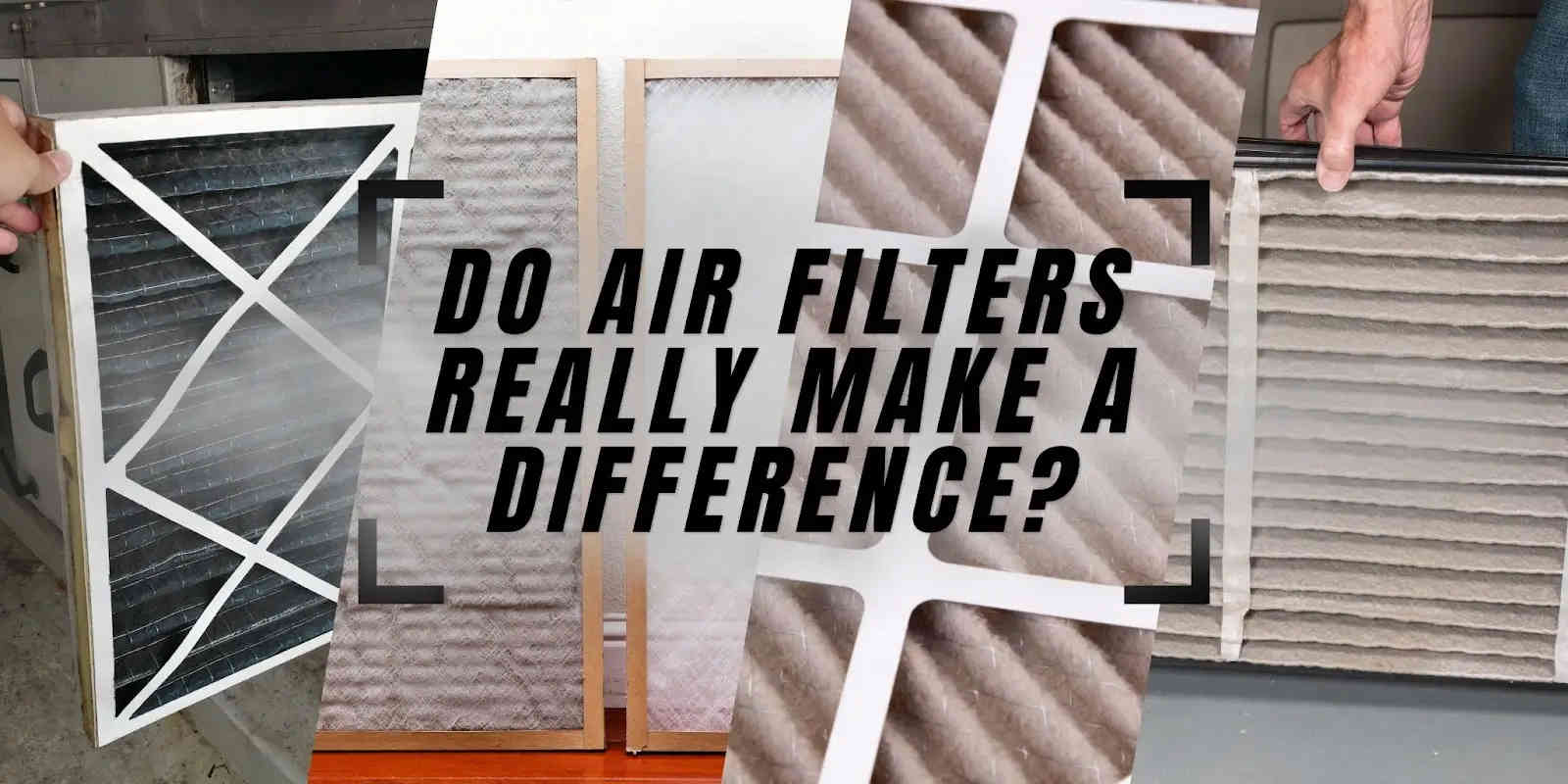Keeping the quality of indoor air and making sure HVAC (heating, ventilation, and air conditioning) equipment operates efficiently depend heavily on air filters.
As consumers' worries about pollution in the air and its effects on health rise, so does their interest in learning about the advantages of air filters.

Here, we address the subject of whether air filters make an effect, examines the importance of air filters, and contrasts various kinds.
The air that passes through our houses is cleaned of dangerous particles with the aid of air filters. These particles may consist of mold spores, dust, pollen, pet hair, and more. Air filters enhance interior air quality and shield HVAC systems from dirt accumulation harm by capturing these particles.
Air filters are available in a variety of paperwork, each with particular advantages and drawbacks. Pleated vs. fiberglass filters are not unusual picks.
Typically, fiberglass air filters are the most economical choice. Larger airborne particles are captured by their basic fiberglass mesh construction. The tiny particles, along with germs or smoke, are not nicely captured by using the gadgets, although. The low MERV (Minimum Efficiency Reporting Value) rating of fiberglass filters can mean that they may now not be very powerful at extracting tiny elements.
Pros:
1. Affordable
2. Easy to find
3. Suitable for basic filtration needs
Cons:
1. Not effective for smaller particles
2. Need to be changed frequently for best results.
The material used to make pleated air filters is folded, increasing the surface area available for particle trapping. These filters usually have higher MERV values and are more effective than fiberglass filters. Dust mites, mold spores, and even some germs and viruses are among the smallest particles they may catch.
Pros:
1. Better at filtering air
2. Last longer than fiberglass filters
3. Good choice for people with allergies or asthma
Cons:
1. More expensive than fiberglass filters
2. May require a more powerful HVAC system due to airflow resistance.
Depending on your specific requirements, you can choose between fiberglass and pleated air filters. Fiberglass filters may be sufficient if your filtration requirements are simple. Pleated filters are a preferable option, though, if you want to increase the quality of the air, particularly for people who have respiratory or allergy problems.
Selecting the appropriate filter size for your HVAC system is also crucial. For many households, a 16x25x4 air filter is the standard size. Selecting the appropriate fit is essential for effective filtration and airflow.
Better Indoor Air Quality: By decreasing dust, pollen, and different allergens, air filters substantially enhance indoor air quality. For individuals who suffer from hypersensitive reactions or respiratory issues, that is mainly beneficial because cleanser air may lessen struggling and beautify fashionable health.
HVAC System Protection: Air filters save cooling and heating systems from accumulating particles and dirt, which prolong their lifespan and improve their efficiency. Eventually, this can assist in lowering maintenance and the cost of energy.
Odor Reduction: By absorbing the particles that give out scents, air filters may also help reduce offensive aromas in the house. Especially in houses with smokers or dogs, this makes the living environment more comfortable.
Energy Efficiency: Improved airflow from a clean air filter lessens the strain on the HVAC system. Because the system won't have to work as hard to maintain a pleasant temperature, energy savings may result.
When selecting an air filter, consider these factors:
MERV Rating: For superior filtration, look for filters with a MERV rating of at least 8. Better particle capture efficiency is indicated by higher scores.
Filter Size: Choose the appropriate filter size for your HVAC system. For efficient airflow and filtration, a good fit is necessary.
Type of Filter: Depending on your requirements, financial situation, and personal preferences, choose between pleated and fiberglass filters.
Replacement Frequency: Recognize how frequently the filter should be replaced. Pleated filters require fewer replacements since they often last longer than fiberglass filters.
Do air filters, then, actually have an impact? The answer is yes. In order to safeguard HVAC systems, improve indoor air quality, lessen smells, and increase energy efficiency, air filters are essential. Depending on your demands, pleated filters are a better choice for those with health issues than fiberglass filters.
A healthier living environment and improved general health may be achieved by homeowners by choosing the appropriate air filter and replacing it on a regular basis. A simple method to enhance indoor air quality and support the efficient operation of HVAC systems is to purchase high-quality air filters. When it comes to making your house cleaner and healthier, the choice between a simple fiberglass filter and a more effective pleated one may make a big difference.
Find the best Professionals and companies nearby you on KreateCube .
Get QuoteStay updates with latest leads, subscribe now!
Stay updated with latest diy home improvement tips, subscribe now.
Home Decor
23-Oct-2024
Keeping your interior environment healthy and pleasant is mostly dependent on your air conditioning (AC) equipment. Air filters are an essential part of any air conditioning system. Customized alternatives can provide considerable benefits...
Read MoreHome Decor
01-Sep-2023
You know that your furnace needs a new filter, but you are not looking forward to it because your furnace filter is an odd size, so it is going to be hard to get a new one. Before you toss out your old furnace, you should know that there are a few...
Read More
Leave Your Comment